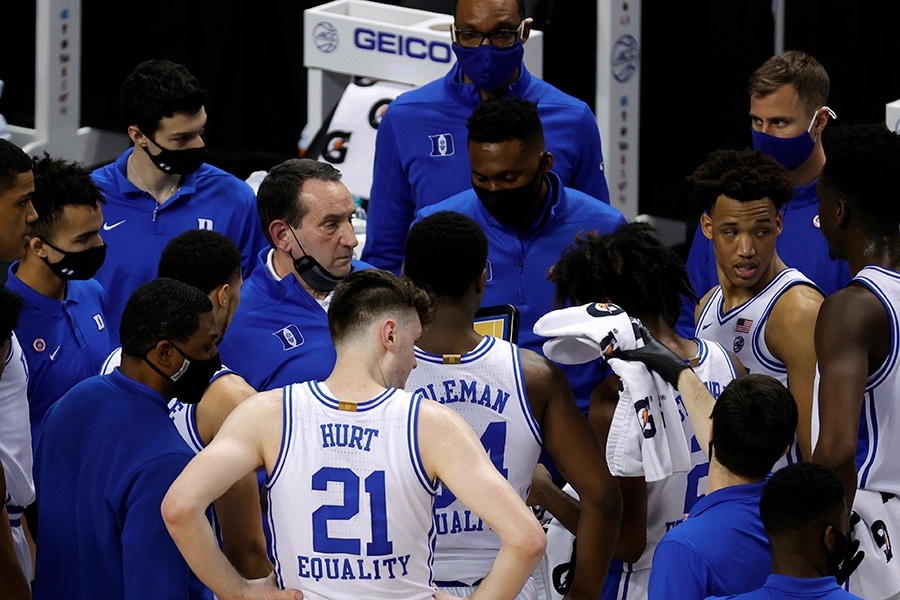
5 Leadership insights from coach K that could work for any team
From Olympic gold medals to NCAA championships, Duke University Men's Basketball Head Coach Mike Krzyzewski is one of the most successful coaches of all time
 Head coach Mike Krzyzewski of the Duke Blue Devils speaks with his team during the second half of their first round game against the Boston College Eagles in the ACC Men's Basketball Tournament at Greensboro Coliseum on March 09, 2021 in Greensboro, North Carolina. Image: Jared C. Tilton/Getty Images
Head coach Mike Krzyzewski of the Duke Blue Devils speaks with his team during the second half of their first round game against the Boston College Eagles in the ACC Men's Basketball Tournament at Greensboro Coliseum on March 09, 2021 in Greensboro, North Carolina. Image: Jared C. Tilton/Getty Images
From Olympic gold medals to NCAA championships, Duke University Men’s Basketball Head Coach Mike Krzyzewski is one of the most successful coaches of all time.
But even with more than 45 years of experience, Krzyzewski faced new and daunting challenges that came with the COVID-19 pandemic.
As the world slowed to a near-halt, Krzyzewski led his team through looming uncertainties, like the fate of the season and how to keep players safe and healthy, he told Bill Boulding, dean of Duke’s Fuqua School of Business. In a return appearance for Fuqua’s Distinguished Speaker Series, Krzyzewski shared strategies for coaching teams and players that could work for teams of all types.
Create shared ownership
Truly successful teams share a sense of ownership, Krzyzewski said. Belonging means more than simply being on the roster, he said. Each member of the team must be emotionally invested in the same goal and must understand what being part of a team means at its core.
[This article has been reproduced with permission from Duke University's Fuqua School of Business. This piece originally appeared on Duke Fuqua Insights]







